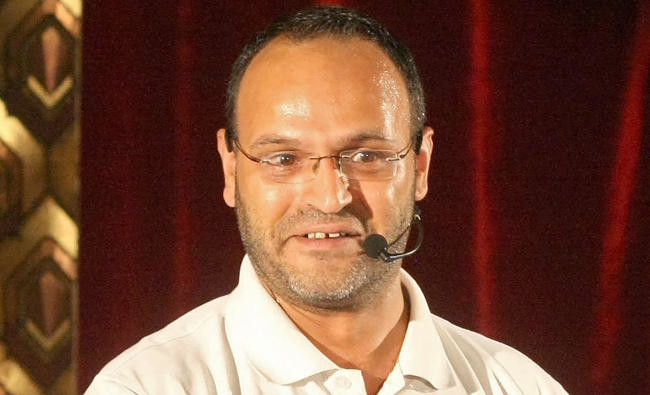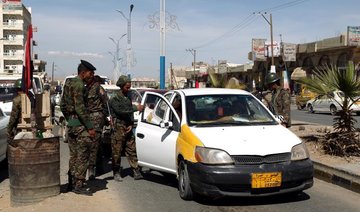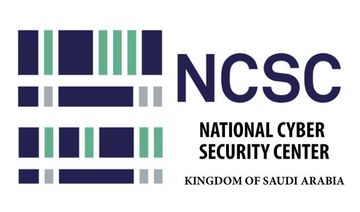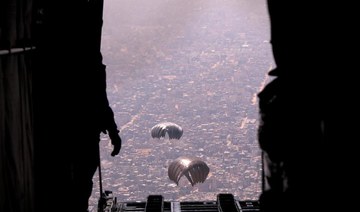BEIRUT: Lebanon was shocked on Friday by the arrest of the writer and actor Ziad Itani for what a security source called “collaborating with Israel over the past three years.”
Itani, a comedian and playwright, was arrested on Thursday evening while returning home in the Ain Al-Rammaneh district in Beirut. Security sources said that he plotted to assassinate Interior Minister Nohad Machnouk and monitored Abdul Rahim Mrad, a former minister.
A security forces statement said: “On 23/11/2017, the State Security Directorate General carried out a quality proactive operation in counterintelligence, and it arrested the Lebanese citizen called Ziad Ahmed Itani, who is an actor, director and playwright (born in Beirut 1975), on charges of collaborating and communicating with Israeli enemy. A specialized unit for the State Security, following monitoring, tracking and investigating for several months inside and outside Lebanese territories, and on direct instructions from the General Director, Maj. Gen. Tony Saliba, confirmed the crime against the suspect Ziad Itani.”
The statement said the suspect admitted to the tasks he was assigned in Lebanon, including “monitoring a group of prominent political figures, and strengthening relations with their close associates, in order to get as much details as possible about their lives, occupations, and especially their movements, and providing his operators with detailed information about two prominent political figures, whose identities will be revealed in our following statements. (The tasks also included) establishing a Lebanese nucleus to support the concept of normalization with Israel, promote Zionist ideas among the intellectuals, and provide his operators with reports about the reaction of the Lebanese society in all its aspects after the political developments which occurred during the past two weeks in Lebanon.”
The security sources added that Itani, according to his confessions, was in touch with a woman who was supposed to come to Lebanon on Dec. 2, and he booked a hotel for her in the Mount Lebanon area.
State Security seized communication equipment from Itani’s home, including a laptop and three cellphones he was using for communication, according to security sources.
Itani became famous in the past few years after he presented the comedy “Beirut Al-Jadideh Road,” which talked about changing traditions in Beirut, and “Beirut on the Tree,” which he presented for many years. He took part in many TV satirical programs.
Lebanese comedian, spying for Israel, arrested
Lebanese comedian, spying for Israel, arrested

Israel warns of escalation from cross-border fire from Hezbollah

- Hezbollah says it will not halt fire unless Israel stops its military offensive on Gaza
JERUSALEM: Intensified cross-border fire from Lebanon’s Hezbollah movement into Israel could trigger serious escalation, the Israeli military said on Sunday.
“Hezbollah’s increasing aggression is bringing us to the brink of what could be a wider escalation, one that could have devastating consequences for Lebanon and the entire region,” Israeli military spokesperson Rear Admiral Daniel Hagari said in a video statement in English.
Iran-backed Hezbollah last week launched the largest volleys of rockets and drones yet in the eight months it has been exchanging fire with the Israeli military, in parallel with the Gaza war.
After the relatively heavy exchanges over the past week, Sunday saw a marked drop in Hezbollah fire, while the Israeli military said that it had carried out several air strikes against the group in southern Lebanon.
The US and France are working on a negotiated settlement to the hostilities along Lebanon’s southern border. Hezbollah says it will not halt fire unless Israel stops its military offensive on Gaza.
“Israel will take the necessary measures to protect its civilians — until security along our border with Lebanon is restored,” Hagari said.
‘No joy’: Gazans mark somber Eid in shadow of war

- Many Palestinians forced to spend holiday without their loved ones
- I hope the world will put pressure to end the war on us because we are truly dying, and our children are broken
GAZA STRIP: In tents in the stifling heat and bombed-out mosques, Gazans on Sunday marked the start of the Eid Al-Adha holiday, devoid of the usual cheer as the Israel-Hamas war raged on.
“There is no joy. We have been robbed of it,” said Malakiya Salman, a 57-year-old displaced woman now living in a tent in Khan Younis City in the southern Gaza Strip.
Gazans, like Muslims the world over, would usually slaughter sheep for the holiday — whose Arabic name means “feast of the sacrifice” — and share the meat with the needy.
Parents would also give their children new clothes and money for the celebration.
But this year, after more than eight months of a devastating Israeli campaign that has flattened much of Gaza, displaced most of the besieged territory’s 2.4 million people, and sparked repeated warnings of famine, the Eid is a day of misery for many.
“I hope the world will put pressure to end the war on us because we are truly dying, and our children are broken,” said Salman.
Her family was displaced from the far-southern city of Rafah, a recent focus of the fighting which began after Hamas’s Oct. 7 attack on southern Israel.
The military on Sunday morning announced a “tactical pause of military activity” around a Rafah-area route to facilitate the delivery of desperately needed humanitarian aid to Gazans.
AFP correspondents said there were no reports of strikes or shelling since dawn, though the Israeli military stressed there was “no cessation of hostilities in the southern Gaza Strip.”
The brief respite in fighting allowed worshippers a rare moment of calm on holiday.
Many gathered for the Eid Al-Adha morning prayer in the courtyard of Gaza City’s historic Omari Mosque, which was heavily damaged in Israeli bombardment, placing down their frayed prayer mats next to mounds of rubble.
The sound of prayers traveled down some of the city’s destroyed and abandoned streets.
“Since this morning, we’ve felt a sudden calm with no gunfire or bombings ... It’s strange,” said 30-year-old Haitham Al-Ghura from Gaza City.
He hoped the pause meant a permanent ceasefire was near, though truce mediation efforts have stalled for months.
In several areas of the war-battered territory, especially in Gaza City, young boys were seen manning roadside shops selling perfumes, lotions, and other items against the backdrop of piles of rubble from destroyed buildings and homes.
Many vendors used umbrellas to protect themselves from the scorching sun as they sold household items on Gaza City’s main market street. But there were few buyers.
Food and other goods can reach four or five times their usual price, but those who cling to the holiday traditions can still afford them.
In Khan Younis, displaced man Majdi Abdul Raouf spent 4,500 shekels ($1,200) — a small fortune for most Gazans — on a sheep to sacrifice.
“I was determined to buy it despite the high prices, to perform these rituals and bring some joy and happiness to the children in the displacement camp,” said the 60-year-old, who fled his home in Rafah.
“There is sadness, severe pain, and suffering, but I insisted on having a different kind of day.”
The deadliest-ever Gaza war began after Hamas’s unprecedented Oct. 7 attack.
Israel’s retaliatory offensive has killed at least 37,337 people in Gaza, also mostly civilians, according to the Health Ministry in the territory.
For many, a halt in fighting can never bring back what has been lost.
“We’ve lost many people, there’s a lot of destruction,” said Umm Mohammed Al-Katri from Jabalia refugee camp in northern Gaza.
“This Eid is completely different,” she said, with many Gazans forced to spend the holiday without their loved ones killed or displaced during the war.
Grieving families on Sunday flocked to cemeteries and other makeshift burial sites, where wooden planks marked the graves.
“I feel comfort here,” said Khalil Diab Essbiah at the cemetery where his two children are buried.
Even with the constant buzzing of Israeli drones overhead, visitors at the cemetery “can feel relieved of the genocide we are in and the death and destruction,” he said.
Hanaa Abu Jazar, 11, also displaced from Rafah to the tent city in Khan Yunis, said: “We see the (Israeli) occupation killing children, women and the elderly.”
“How can we celebrate?” asked the girl.
Jordan conducts three airdrops in southern Gaza

- Aid packages containing food, clothing, and sweets were delivered to various locations in the southern Gaza
AMMAN: Jordan’s armed forces conducted three airdrops to the southern part of Gaza on Sunday, in collaboration with Egypt, to mark the first day of Eid Al-Adha, Jordan News Agency reported.
Aid packages containing food, clothing, and sweets were delivered to various locations in the southern Gaza Strip by two planes from the Royal Jordanian Air Force and an aircraft from Egypt.
Earlier on Saturday, a 45-truck humanitarian aid convoy arrived in Gaza, sent by the JAF and the Jordan Hashemite Charity Organization (JHCO).
In cooperation with its regional and international allies, the Jordanian armed forces have carried out 261 airdrops and delivered 1,970 trucks of aid since the beginning of Israel’s onslaught on Gaza.
WHO chief Tedros Adhanom Ghebreyesus said that “a significant proportion of Gaza’s population is now facing catastrophic hunger and famine-like conditions,” as Israel continues to impose severe restrictions on the supply of food, water, medicine, and fuel to the Strip.
Kuwait Red Crescent distributes meat to Lebanese families, Syrian, Palestinian refugees

- Initiative follows last week's distribution of Eid Al-Adha packages by the KRCS
LONDON: The Kuwait Red Crescent Society (KRCS) has launched an initiative to distribute meat to around 1,500 Lebanese families, as well as Syrian and Palestinian refugees in Lebanon, in celebration of Eid Al-Adha, Kuwait News Agency reported on Sunday.
Youssef Boutros, relief coordinator of the Lebanese Red Cross (LRC), announced that the distribution process had begun on Sunday.
This initiative follows last week's distribution of Eid Al-Adha packages by the KRCS, which included clothes and other essentials for around 2,000 families, covering Lebanese families and Syrian and Palestinian refugees.
In addition to these efforts, the KRCS is continuing its humanitarian aid to 6,000 Lebanese families in southern Lebanon, who have been affected by military confrontations between Hezbollah and Israel since October.
This aid, which includes food and staple supplies, is being distributed with the assistance of the LRC.
ICC members demand end to ‘intimidation’ so court can carry out work

- Group of 93 states issues statement amid reports of Israeli activities against court
- Call is also in response to the behavior of other countries
LONDON: A group of 93 states has demanded the International Criminal Court be allowed to work “without intimidation” after reports that Israel has been engaged in a nine-year clandestine campaign to undermine it.
In a statement the group said it would work to preserve the court’s “integrity from any political interference and pressure,” amid claims by the office of the ICC’s chief prosecutor, Karim Khan, that it has received threats after he requested arrest warrants for senior Israeli government and Hamas figures, including Israel’s prime minister, Benjamin Netanyahu, and Defense Minister Yoav Gallant.
The statement in defense of the ICC, which called on “all states to ensure full cooperation with the court for it to carry out its important mandate,” was drafted by Belgium, Chile, Jordan, Senegal and Slovenia after “eye-opening” revelations about Israeli intelligence operations against the court published in The Guardian. It was also signed by Western states including Germany, France, Canada and the UK.
A diplomatic source told the paper that the story had “made some (diplomats) realise that it’s time to put out some sort of statement from the states that belong to the court, responding to what has now come to light.”
The source added that the statement was not just aimed at the actions of Israeli intelligence agencies but was also a response to the behavior of other states, including a cyberattack on the ICC last year that came during investigations into senior Russian figures accused of involvement or complicity in crimes committed in Ukraine.
The source told The Guardian: “The court is going after some very powerful people, not just in the Palestine investigation, and it’s time to send a message that the state parties are there to defend it.”
Danya Chaikel, the International Federation for Human Rights’ representative to the ICC, said: “This is a unique moment of international solidarity, with 93 ICC states parties standing up for global justice and accountability for mass atrocities. They are collectively opposing the egregious threats to the court from powerful countries including Israel, the US and Russia, and strongly rejecting their efforts to manipulate the rule of law for political gains.”






















